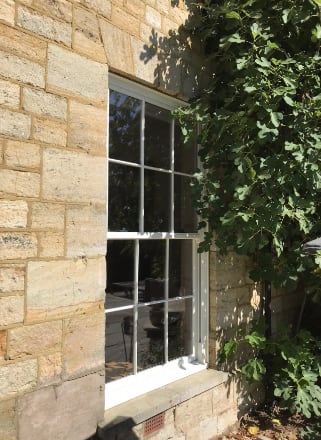Even as the weather turns cooler, it’s important not to forget about ventilation. Proper airflow is essential for maintaining a comfortable, healthy home and preventing problems like condensation, damp, and black mould. Many homeowners focus on heating and insulation in colder months but overlook the importance of keeping the air moving. A few simple steps can make a big difference to the freshness and dryness of your home.

1. Open Windows Briefly Every Day
It doesn’t have to be a long process—a quick ten-minute daily airing is enough to make a real impact. Opening windows allows humid air to escape and fresh air to circulate, reducing moisture that could otherwise settle on cold surfaces like windows and walls.
Tips for effective ventilation:
Choose rooms where moisture builds up, such as kitchens, bathrooms, and bedrooms.
Open multiple windows if possible to create a cross-breeze, which helps air flow more efficiently.
Even in winter, a short period of ventilation won’t drastically lower your heating efficiency, especially if windows are double or triple glazed.
Why it matters: Consistent daily ventilation prevents condensation from accumulating, keeping your home dry and protecting timber windows, doors, and interior walls from damp-related issues.
2. Use Extractor Fans
Extractor fans are another key tool in the fight against damp and condensation. Kitchens and bathrooms are hotspots for moisture, and fans help remove humid air before it can settle on surfaces.
Best practices:
Run fans during and after cooking or bathing.
Make sure extractor fans are regularly cleaned to maintain efficiency.
Consider upgrading to energy-efficient models that remove moisture effectively without drawing excessive heat from your home.
Why it matters: By consistently using extractor fans, you reduce the risk of black mould developing, which can be harmful to both your home and your health.
3. Avoid Letting Rooms Get Cold and Still
Cold, stagnant rooms encourage condensation, especially on windows, walls, and ceilings. Keeping a consistent, gentle warmth helps air circulate naturally, preventing moisture from settling.
Tips for maintaining airflow and warmth:
Use radiator valves or thermostats to maintain steady room temperatures.
Keep internal doors open where possible to allow air to move freely between rooms.
Use ceiling fans on low settings (if installed) to circulate warm air in larger spaces.
Why it matters: A slightly warmer, ventilated room not only feels more comfortable but also dramatically reduces the likelihood of damp and condensation. This is particularly important in bedrooms, where we spend a third of our lives and where moisture builds up from breathing and body heat overnight.
4. Additional Ventilation Considerations
Check your window and door seals: Properly fitted, modern windows (whether uPVC, timber alternatives, or composite) can prevent draughts while still allowing controlled ventilation.
Consider trickle vents: Many modern windows come with small vents built into the frame, offering a constant flow of air without fully opening the window.
Regularly inspect for damp: Early detection of moisture or mould helps prevent costly repairs later. Use natural cleaning solutions or specialist treatments to tackle small patches immediately.
Even in cooler months, keeping air flowing through your home is essential. Just ten minutes of daily ventilation, regular use of extractor fans, and maintaining gentle warmth all contribute to a fresher, drier, and healthier living environment.
Consistent airflow protects your home from condensation and black mould, helping preserve your windows, doors, and interior surfaces. By combining practical ventilation habits with well-maintained windows and doors, you can enjoy a cosy, dry, and comfortable home all year round.
At Milford Window Company, we understand the importance of proper ventilation and the role high-quality windows and doors play in maintaining a healthy, energy-efficient home. From clever trickle vents to expertly fitted replacements, we can help ensure your home stays fresh and dry—whatever the weather.

